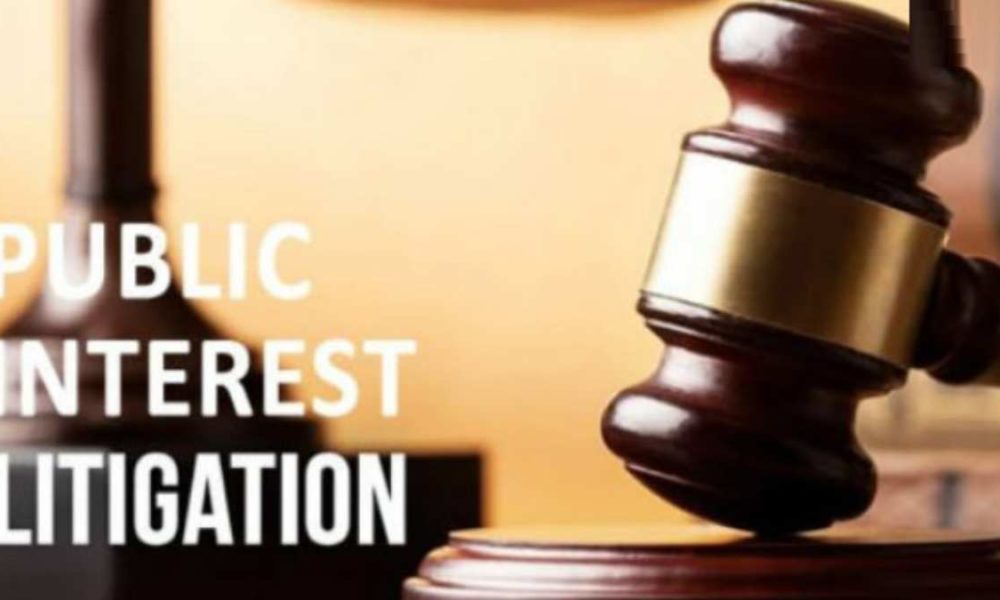Whether courts can interfere in matters which are within the realm of the executive? And at the same time whether courts can shut their eyes to the cases of blatant deprivations of basic fundamental rights affecting right to life and personal liberty, are the questions normally arise in public interest litigations. The New York Times quoting the plight of a promoter after dismissal of a PIL against his project reported, “it is not easy for any company to do business in India, with its mercurial and ponderous decision-making, creaky court system and woeful infrastructure”. The said case offers a reason to analyze PILs from the perspective of law and economics.
Legal Reasoning vis-a-vis Economic Reasoning in Judicial Decision Making
Legal reasoning i.e application of statutory law, judicial precedents and judicial discretion guided by justice, equity and fair conscience are guiding principles for judicial decisions. Economic reasoning is based on the principle in creation of appropriate incentives to people who are subject to a particular legal rule in reaching efficient outcomes. The law and economic movement in USA started in 1960 focusing law as an incentive for changing behavior and instrument for achieving efficiency. The term ‘economic analysis of law’ first time used by Richard Posner in the title of his book in 1973 and generalized that individuals are rationales in economic analysis of law and in particular in analysis of judicial decisions.
The difference between the legal reasoning and the economic reasoning is that economic reasoning attempts to deal with the issues like incentives and efficiency directly whereas legal reasoning requires the application of statutory law, procedural law, and judicial discretions based on the principles of justice, equity and fair conscience.
Public Interest Litigations (PIL)
The PIL which started as catalyst in making justice accessible to the vulnerable who on their own could not knock the door of justice. The jurisdictions of the Supreme Court of India under Article 32 and High Courts under 226 of the Constitution of India are invoked by public spirited persons fighting for the vulnerable groups who are affected by non-implementation of law/ welfare polices resulting deprivation of their fundamental rights guaranteed under the Constitution of India. With the passage of time PILs have been filed challenging the policies of the government. Sometimes PILs were filed raising conflicting rights concerning an individual’s right to carry an economic activity vis-à-vis collective rights of vulnerable groups. However, after the judgment of the Hon’ble Supreme Court in Tata Cellular case [(1994)6 SCC 651], normally courts restrain themselves in the interfering in the policy matters and this development stated to have an effective check on unnecessary exercise of judicial discretions in entertaining public interest litigations.
The HSV Case
Himalyan Ski Village (HSV) case relating to a mega tourism project in the Western Himalayan town of Manali undertaken by Mr. Alfred Ford, the great grandson of Mr. Henry Ford in 2004. The project contemplated an investment of $ 300 million and as reported it was the largest foreign direct investment in tourism sector. The project contemplated worldclass ski slopes, star hotels which would be the destination of high-end adventure tourists. The project proposed to employ directly and indirectly more than 4000 local youth. The company entered a Memorandum of Understanding (MOU) with Government of Himachal Pradesh in 9.12.2005 and implementation agreement was executed on 5.6.2006. The HSV in pursuance of the implementation agreement started execution of the project and the detailed project report was approved by the State Government on 5.6.2007 after obtaining EIA.
While the project was under implementation, two PILs i.e. one by an environmental NGO and another by a local hotelier filed before the High Court of Himachal Pradesh. Challenging the project on environmental grounds. Finally, after years of litigations the Hon’ble High Court vide judgment dated 22.6.2012 directed HSV to proceed with the project. Even though the High Court has allowed the HSV to proceed with the project but the investors and promoters lost interest as the project is not viable and the initial investment of several crores has become futile.
Economic Analysis of Law and Indian Judiciary
The HSV may be one of such instances which opens up the debate on the economic consequences of judgments. The judgment of the Supreme Court of India in Shivshakti Sugar case [(2017) 7 SCC 729] emphasized the importance of application of economic analysis of law by judiciary when the country is marching towards economic growth in an era of globalization.
However, the judgment leaves no doubt that the economic reasoning to be applied only an aid to interpretation of a provision and in exercise of judicial discretion. The Supreme Court has observed that it is the duty of the court to decide a case by applying the statutory provision of law and the court while exercising its discretion can keep in mind the economic aspect /effect on decision. Subsequently, the Supreme Court has applied the economic reasoning over the ethical consideration in deciding the question of euthanasia [Common Cause v. Union of India: (2018) 5 SCC 1].The High Court of Chhattisgarh in applying the observation of the Supreme Court in Shivashakti Sugar case, has considered the economic impact of judicial decision in deciding a writ petition on 23.3.2018.[ M/S E. Tech Projects Private . vs State Of Chhattisgarh in W.P.(C) No.1509 of 2016.]
The judgment in Shivashakti Sugar case is a landmark development in application of economic analysis of law in Indian legal system. It may be commented that the judgment may not be strict application of economic analysis of law as it applied in American legal system but is a guiding principle in exercise of discretionary jurisdictions.
Economic Reasoning and PILs
The higher judiciary’s role to review the decision making process of the government within the ambit of Article 14 of the Constitution of India cannot be questioned. The legal researchers and scholars point out that Judicial activism is beneficial if it is within the limits of judicial competence as the judiciary is not equipped to make technical choices.[EPW,Vol-37,2002]. The HSV case while demonstrating the economic cost of PILs, may offer justification in application of economic reasoning in entertaining PILs. The Supreme Court and the High Courts are custodians of protecting the fundamental rights of the people and therefore cannots shut their eyes to the violation of the basis fundamental rights affecting right to life and personal liberty.. While taking cognizance of such violations of fundamental rights either suo motu or entertaining PILs, the instrumentalities of the state must be made aware of the failure of their duties which resulted in violations of fundamental rights and the economic reasoning may be a guiding principle in passing directions to the government which may have financial implications.
Bhagabati Prasad Padhy is an Advocate-on-Record of Supreme Court of India and also practises in High Court and District Courts of Delhi.














